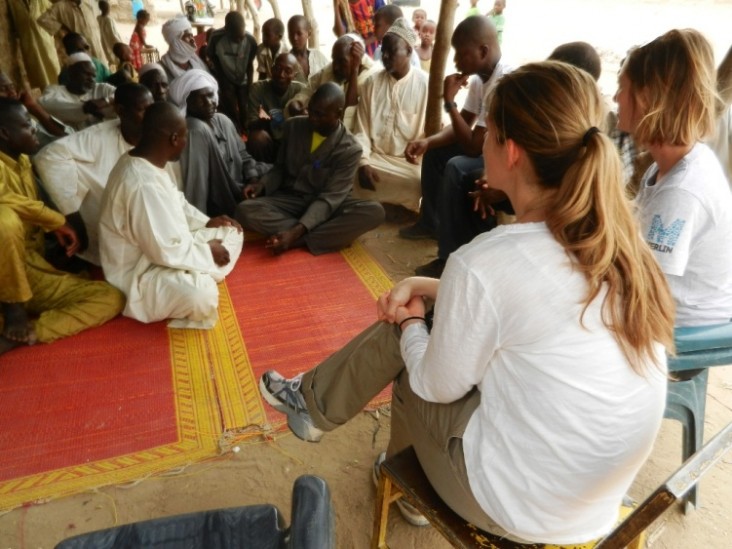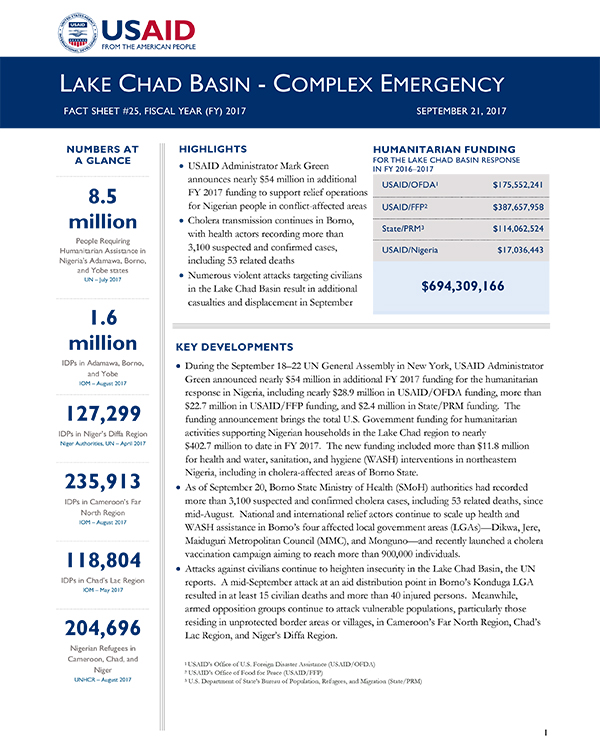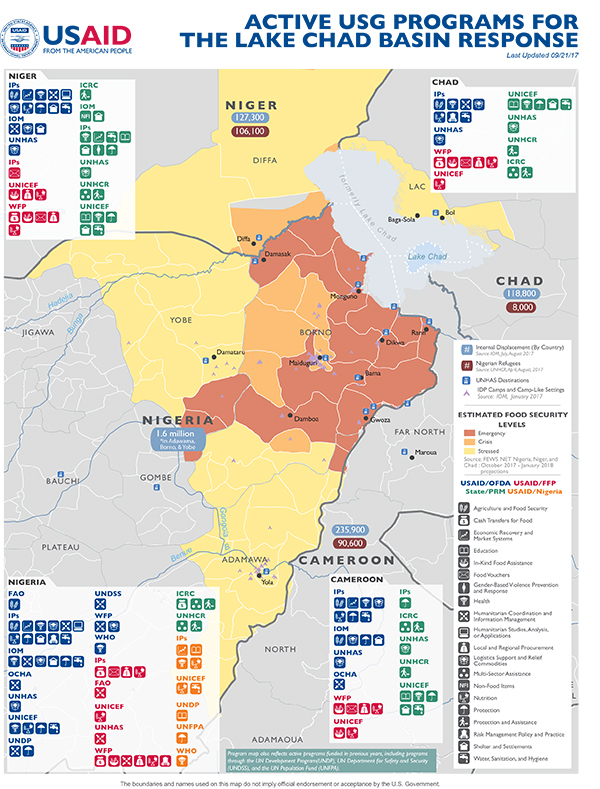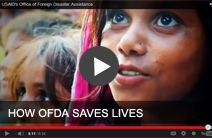- What We Do
- Agriculture and Food Security
- Democracy, Human Rights and Governance
- Economic Growth and Trade
- Education
- Ending Extreme Poverty
- Environment and Global Climate Change
- Gender Equality and Women's Empowerment
- Global Health
- Water and Sanitation
- Working in Crises and Conflict
- Disaster Assistance
- Political Transition Initiatives
- Conflict Mitigation and Prevention
- Countering Violent Extremism
- Disaster Risk Reduction
- Peacebuilding and Reconciliation
- Providing Safe & Secure Environments for Development
- Recovering From Crisis
- Resilience
- Tech Challenge for Atrocity Prevention
- World Humanitarian Day
- U.S. Global Development Lab

Key Developments
USAID's Office of U.S. Foreign Disaster Assistance (USAID/OFDA) is responding to the complex emergency in the Lake Chad Basin region, including Nigeria, Cameroon, Chad, and Niger.
Attacks against civilians continue to heighten insecurity in the Lake Chad Basin, the UN reports. Armed opposition groups continue to attack vulnerable populations, particularly those residing in unprotected border areas or villages, in Cameroon’s Far North Region, Chad’s Lac Region, and Niger’s Diffa Region.
Recent protection-monitoring reports highlighted an increasing trend of protection incidents in Chad, with more than 230 cases reported in August compared to approximately 210 and 190 cases in July and June, respectively, according to the UN. In particular, the UN reported an increase of nearly 20 percent in gender-based violence cases in July compared to the approximately 150 cases reported in June. USAID’s Office of U.S. Foreign Disaster Assistance non-governmental organization partners are creating child-friendly spaces and mobilizing community volunteers in internally displaced person camps to train youth on life skills, refer children requiring psychological care to facilities, organize community resiliency events, and identify and mitigate protection risks in their communities. In addition, U.S. Department of State’s Bureau of Population, Refugees, and Migration partners the International Committee of the Red Cross and the UN Children's Fund are providing multi-sector assistance, including health, protection, shelter, and water, sanitation, and hygiene services, to vulnerable populations in Chad.
USAID/OFDA is responding to the complex emergency in the Lake Chad Basin region. Please visit our web page for additional information.
Background
Attacks by Boko Haram in Chad’s Lac Region began in January 2015 and have continued through 2017, prompting displacement—including population movement of Chadian returnees and refugees from neighboring Nigeria—and exacerbating food insecurity and other humanitarian needs, according to the UN. Deteriorating security conditions in the region have impeded humanitarian response efforts in 2017. More than 146,000 people—including internally displaced persons (IDPs), Nigerian refugees, and host community members—are facing acute levels of food insecurity in Lac, according to the UN. The region also hosts nearly 119,000 displaced persons, including IDPs, persons awaiting registration, returnees, and third country nationals, with the displaced population putting pressure on already scarce local resources. Overall, approximately 345,000 people required humanitarian assistance as a result of Boko Haram’s impact in Chad.










Comment
Make a general inquiry or suggest an improvement.